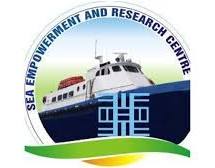Maritime
Port Economic Regulatory Agency Bill 2023 Passes Second Reading

BY EGUONO ODJEGBA
The commitment of the present administration to provide the right enabling environment for the growth of port businesses received a major boost as the Nigerian Shipping and Port Economic Regulatory Agency Bill 2023 passed the second reading at the House of Representatives.
According to a release signed by Rebecca Adamu, Assistant Director, Public Relations, Nigerian Shippers’ Council, the development on Wednesday, 14th February 2024 is gradually bringing to a close, the protracted efforts to emplace the port economic regulatory law.
The Bill seeks to repeal the Nigerian Shippers’ Council Act Cap N133 Laws of the Federation of Nigeria (LFN), and enact the Nigerian Shipping and Port Economic Regulatory Agency Act when enacted into law.
The statement reads, “As part of the Minister of Marine and Blue Economy, Adegboyega Oyetola’s Key Performance Indicator (KPI) for the year 2024, as signed in the performance bond by agencies, the Nigerian Shipping and Port Economic Regulatory Agency Bill 2023 , has passed the second reading at the House of Representatives.
“Presenting the Bill at the House of Representatives on Wednesday, 14th February 2024, the Chairman, House Committee on Shipping Services, Hon. Abdussamad Dasuki, said that the government made the Nigerian Shippers’ Council the Port Economic Regulator in 2015.”

According to the Committee Chairman, ‘‘If you go through the documents before us, you will see that there is a gazette by the Federal Government in 2015. In that gazette, the Federal Government highlighted what the Shippers’ Council is actually doing today.
‘‘The Federal Government noted that the objective of the regulation is to create an effective regulatory regime for the Nigerian ports after the concession of the Ports. Port does not mean the Nigerian Ports Authority alone. It also means all the stakeholders in the ports, for the control of tariffs, rates, charges and other related economic services.
‘‘The Shippers’ Council’s gazette is being implemented today as a regulation and not as an act. The Regulations provided that the NSC shall perform the role of interim port economic regulator with the administrative backing of the Federal Government.
“The Regulations further provided that from the commencement of this regulation in 2015, every regulated service provider in the Nigerian ports shall be registered with the Council. And as at today, they are answerable to the Nigerian Shippers’ Council’’, he added.
Hon. Dasuki reiterated the need to repeal the existing NSC’s Act in-order to empower the Council to be able to discharge its mandate as the Port Economic Regulator.
It would be recalled that the Nigerian Shippers’ Council (NSC), was established in 1978 to protect the interest of Nigerian shippers. The Council’s mandate was later expanded to include Economic Regulation of the port pursuant to the Port Economic Regulator Order 2015.
This necessitated the review of the NSC Act to harmonize all the regulations into the Nigeria Shipping and Port Economic Regulatory Agency Bill.




































